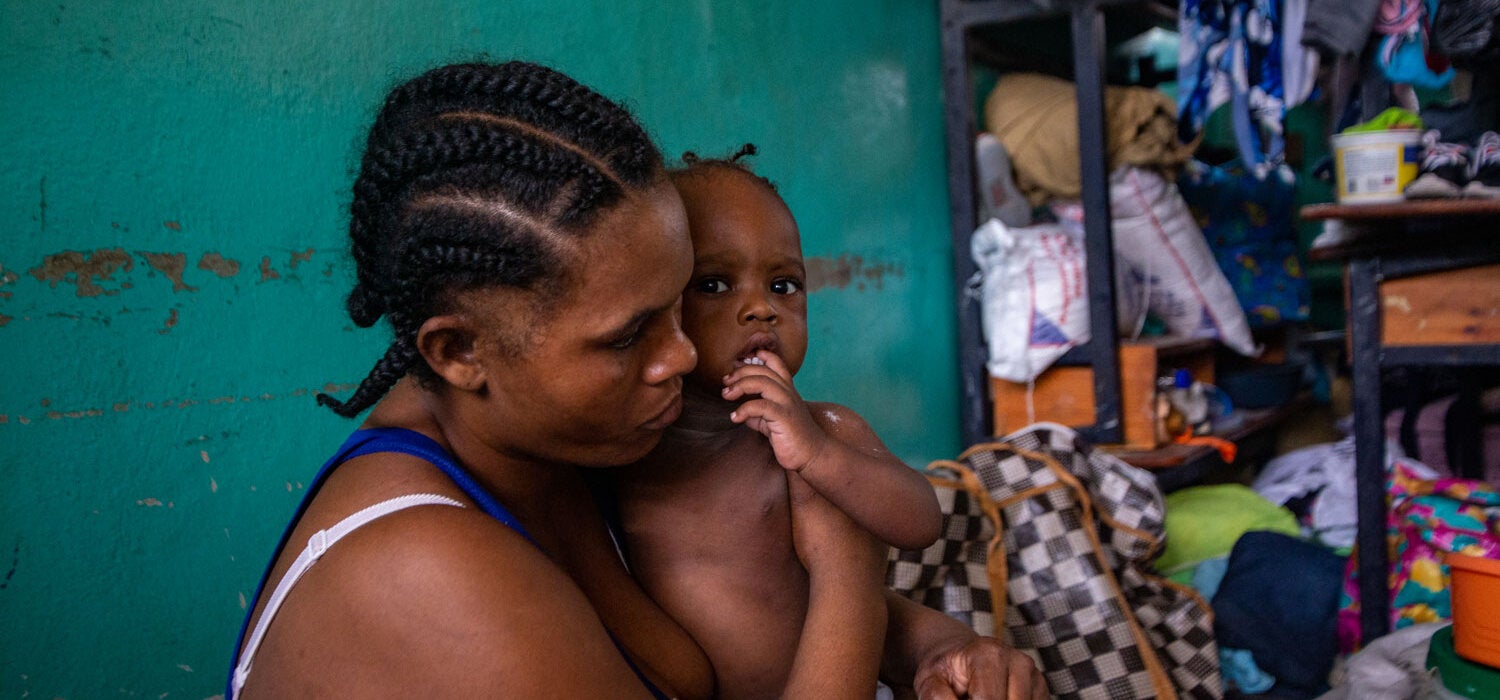Marie-Lore, a 26-year-old mother of three, looks down at her children in despair. Her home in Delmas was burned to the ground by armed groups, forcing her to flee with nothing but a small bag. Her son was saved from the flames by a neighbor, but now, in a temporary shelter in Port-au-Prince, Haiti, with hundreds of other displaced families, she struggles to keep her children safe and healthy. “I wish we could have access to clean water, so we could keep ourselves safe and clean,” she says.
Like Marie Lore, Dama, 29, also fled her home in Port-au-Prince after it was destroyed in the violence. She now lives with her four sons in a school-turned-Internally Displaced Persons (IDP) site, in precarious conditions. “I don’t like this life,” she says, noting the lack of food and the constant risk of disease in overcrowded shelters. “My child has had a fever for days, and I can’t afford to take him to the hospital. I fear he might catch cholera from the conditions here.”
The voices of Marie-Lore, Dama, and many others, tell the story of Haiti's current humanitarian crisis driven by escalating violence and widespread displacement.



